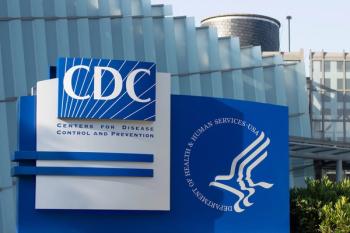
Genes, age may play a role in flu shot effectiveness
A new study reveals that certain genes may play a role in how effectively the body produces antibodies against the flu after vaccination.
Researchers may have found genetic clues to help predict who will have a better response to the flu vaccine.
A study conducted by the Human Immunology Project Consortium (HIPC) and Center for Human Immunology used gene profiling and RNA sequencing to track gene expression before and after flu vaccination. The team found that individual immune responses to the flu vaccine can vary depending on the level of protective antibodies an individual produces, particularly in people under age 35.
The study, published in Immunology, is the largest of its kind to date, using data from more than 500 patients from across the country over five flu seasons.
Participant data was divided into four groups including one group of individuals under age 35 and another of individuals over age 60, and pre-vaccine predictors of antibody responses to the flu vaccine were studied. That information was compared against two additional groups-a younger cohort under age 35 and an older cohort over age 60-to validate the results. Researchers identified nine genes and three gene groups linked to strong flu antibody responses in younger adults, but were not able to validate any specific predictors to a strong flu antibody response in the older population. Instead, researchers found that the same predictors that identified a strong flu antibody response in the younger cohort were associated with a weaker response in the older age group.
"These findings provide insights into potential mechanisms regulating immune responses in younger and older individuals," Alison Deckhut-Augustine, Ph.D., of NIAID’s Division of Allergy, Immunology and Transplantation told Medical Economics. "It’s too soon to say whether such knowledge will have practical applications for clinical practice. However, a deeper understanding of the mechanisms regulating induction and maintenance of protective immunity in different populations may lead to the development of population-specific vaccine formulations. A good example of this is the high-dose influenza vaccine, which is designed to provide improved protection for adults 65 years and older."
Greater potential
Researchers said they hope this discovery could lead to the development of new vaccines and vaccination techniques.
"Having a deeper understanding of the mechanisms regulating induction and maintenance of protective immunity in different populations may lead to the development of either population-specific vaccines or vaccines that provide protection for the majority of individuals, regardless of age," said Deckhut-Augustine. "NIAID intramural and NIAID-funded extramural researchers are continuing to examine factors that impact influenza vaccine responses in older adults, as well as examining mechanisms regulating immune responses to other vaccines in the very young, young adults and elderly individuals."
Data from the study is being made available on the
Deckhut-Augustine said it's possible that, in the future, this kind of discovery could help clinician's counsel patients on their predicted response to the flu vaccine, and maybe others, as well.
Newsletter
Stay informed and empowered with Medical Economics enewsletter, delivering expert insights, financial strategies, practice management tips and technology trends — tailored for today’s physicians.






